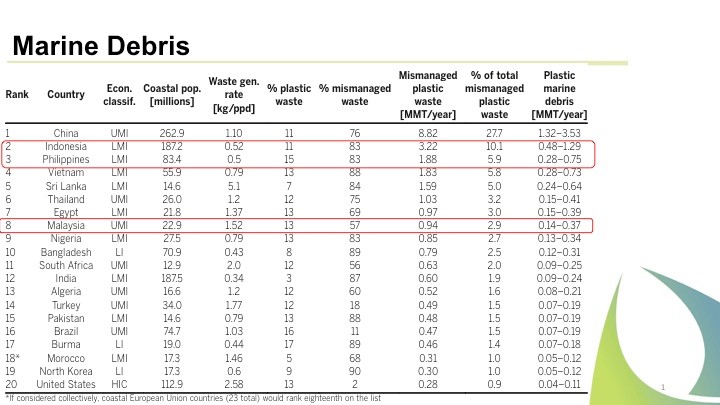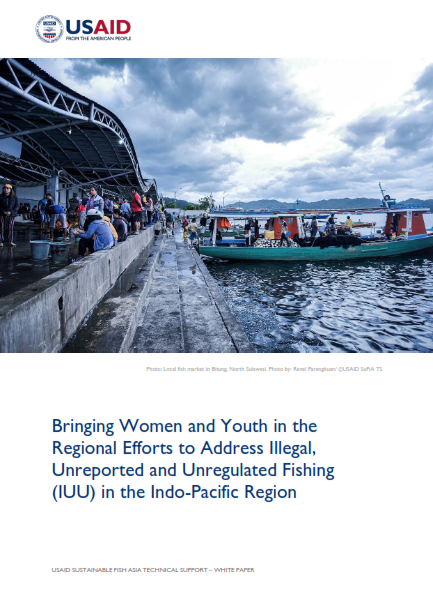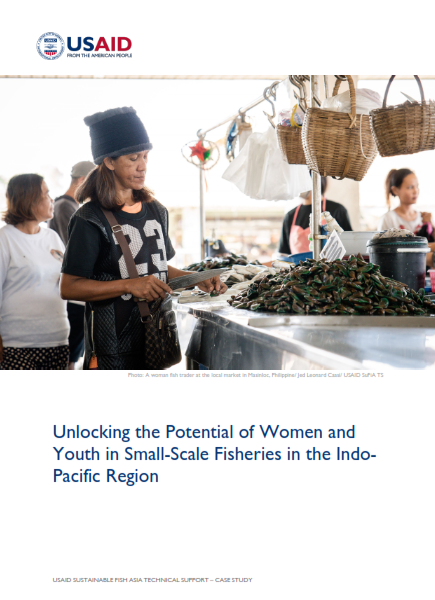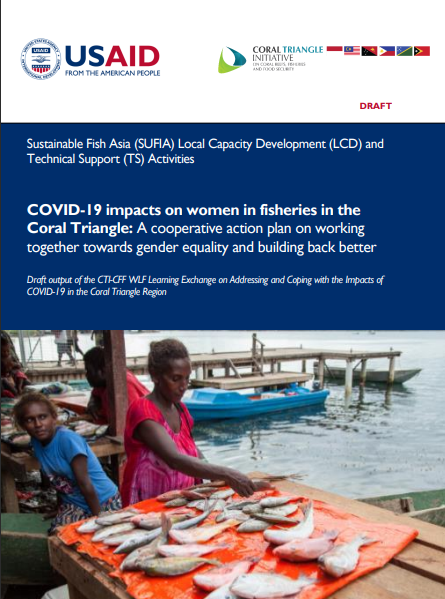ANNOUNCEMENT: BEACH CLEAN-UPS & CAMPAIGNS AGAINST MARINE PLASTICS DEBRIS in MARCH-APRIL 2018
Marine plastics debris is becoming a major concern globally. As early as 2015, a research published in the journal Science has ranked the top 20 plastic polluters and found that most of the plastic entering into the ocean comes from China, followed by Indonesia, Philippines, Vietnam and Sri Lanka. The study found that China, being the highest contributor to plastic marine debris contributed ca. 1.32 to 3.52 million tonnes a year, and Indonesia ca. 0.5-1.3 million tonnes per year (Jambeck et al., 2015). "That's a function of the mix of population size and the level of development in the country," says ecologist Dr Chris Wilcox, from CSIRO.

Indonesia, for example, now has a National Plan of Action on Controlling Marine Debris in Indonesian Waters 2017 –2022. Its national strategies include:
- Increase public awareness, law enforcement, and inclusive participation from multi-stake-holders
- Controlling discharges of marine debris in terrestrial and coastal areas
- Controlling discharges of marine debris into marine waters
- Institutional Strengthening.
What can Individuals in CTI countries do?
- Organize or participate in Beach Clean ups
- Reduce usage of products with plastic packaging
-
Lobby your local authorities, governments and plastic industries to implement measures to reduce, reuse, recycle plastic wastes. Examples:
- Put value on plastic wastes, including bottles: Germany puts a price of 25 cent (Euro cent) on each plastic bottle with the recycle logo and barcode, and supermarkets have some machines or mechanism to accept the return of these bottles, where vouchers are issued for the bottles in exchange for cash at the cashier.
- Point 1 above must be complemented by wastes separation, collection and processing with plastic recycling facilities.
-
Charge money for plastic bags: One year after the State of Israel introduced a law that required supermarkets to charge customers for the use of plastic bags, use of the bags has dropped by 80 per cent, and bag waste found in the sea has halved.
https://www.unenvironment.org/news-and-stories/story/just-one-year-israel-halves-plastic-bags-found-sea
BEACH CLEAN UPs :
Many beach clean ups are organized by CTI countries. Indonesia and Malaysia for example also participate in the annual international Beach Clean Up day in September. To be more organized, organizers and participants can contribute information for Beach Clean ups research. For example:
- Individual Collector's Form:
- https://oceanconservancy.org/wp-content/uploads/2017/04/OC-DataCards_volunteerFINAL_ENG.pdf
- Cleanup Coordinator Form:
- https://oceanconservancy.org/wp-content/uploads/2017/04/OC-DataCards_coordFINAL_ENG.pdf
For example, a series of Beach Clean Up is being organized by Reef Check Malaysia on 3rd March 2018 at several locations around Malaysia (currently about 10 locations) to raise awareness of the marine debris issue, and collect data that can be used to start a dialogue with the government and plastic manufacturers on the issue. “Hopefully this will grow into a bigger national effort, culminating in a huge clean-up in September to coincide with International Coastal Clean-up day as well as movement by government on marine debris, plastic recycling, etc.”, said Mr. Julian Hyde, General Manager of ReefCheck Malaysia.
ReefCheck Philippines and ReefCheck Indonesia maybe having their own Beach Cleanup Campaigns soon that you can participate in or youths from Coral Triangle Countries can organize their beach clean-up campaigns.
March beach clean-up in Malaysia
In conjunction with International Year of Reef 2018 global awareness campaign, The Reef Check Malaysia will kick off a beach clean-up effort on the 3rd of March 2018 in 10 different locations. These activities will be located on the islands of Tioman, Mantanani, Sibu Tinggi, Pangkor, Perhentian, and Mabul. The beach clean-up aims to highlight marine debris issue particularly on plastic waste as one of the biggest threats to marine ecosystems.
For further information and how to participate, please kindly contact wecare@reefcheck.org.my or check www.reefcheck.org.my
Also in March-April in Manado, there will be the 13th Celebrate the Sea festival, with an underwater photography contest with the theme against marine plastic debris. This festival is organized by the Ocean Geographic.
http://www.celebratethesea.oneocean.com/index.php/festivals/2018



